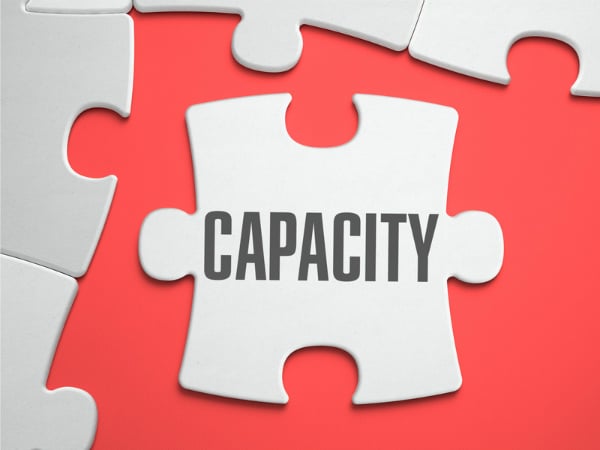Slider: What Got You Here Won't Get You There: An Interview With Dr. Derek Cabrera
 Staff
·
6 minute read
Staff
·
6 minute read
This post is part on an ongoing series. To see more, check out the Sliders tag.
Staff: You recently mentioned a slider called “What Got You Here Won't Get You There." Can you give me a quick overview of what that's about?
Dr. Derek Cabrera: This idea is not new, nor does it belong to me. I just sliderified it. I think this is a well known psychological issue or concept.
The essence of it is in the name: what got you here won't get you there. In this case, the word what refers to the mental models that you've relied on to get yourself through tough times or to achieve certain things. What are generally called “wins.” They range from survival, overcoming a challenge, or winning something (a game, getting a degree, etc), to thriving, success in any dimension. When we strive for a win we build mental models or beliefs that we believe will help us succeed. We have things we follow, such as mantras, or conscious or unconscious ideas that we use to achieve victory.
A good example is the mantra “never give up” that we can say to ourselves over and over. This mantra is a mental model that worked well for you in the past. All of a sudden some situation comes along, which is the ideal situation for you to learn how to quit. For example, settling a lawsuit you really wanted to win. So, your old mental model of "never give up" no longer serves you.
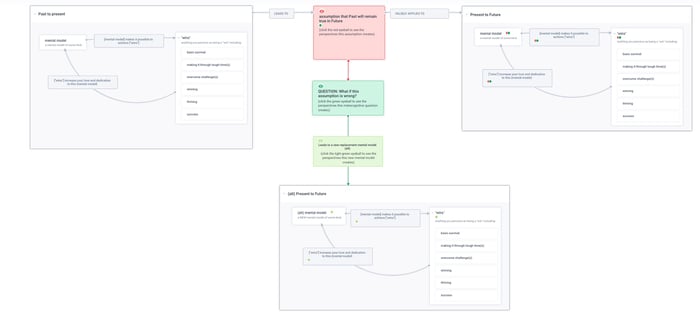 DSRP Structure of the Slider.
DSRP Structure of the Slider.This means what got you there in the past isn't going to get you there now. In this situation, you need to adapt your mental models because the truth is, everybody has grown up being told things like, “winners never quit, quitters never win,” and, “if at first you don't succeed, try, try again.”
Those mental models were drilled into your head at a young age and they worked earlier in life. You quit less things, learned the value of practice, and expanded your horizons. But eventually, you will find yourself in a situation in life, in which, for your own mental or physical health, you should quit.
Staff: Like a poker game?
Dr. Derek Cabrera: Yes, it could be as basic as tossing a bad hand in a poker game, or as complex as quitting a job you’ve taken that's a terrible fit for you and just makes you miserable. It could also be that you're in a relationship that exists in a negative dynamic regardless of your efforts to make it work. However, it's true that some things just don’t work. So you decide to quit (for your own good).
The fundamental idea of this slider is that you don't want to get stuck in the mental models of your past. You want to question the viability of those mental models when new situations arise.
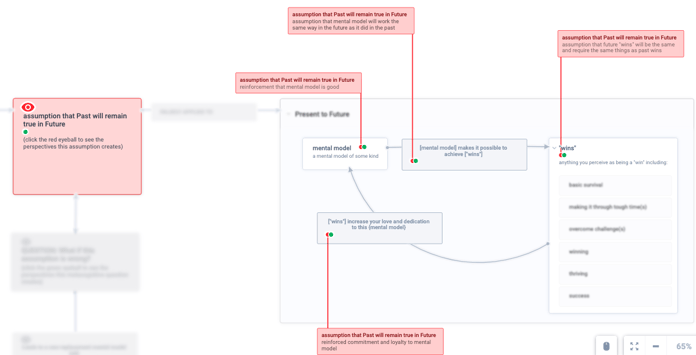 What happens if you continue to believe the future will be like the past?
What happens if you continue to believe the future will be like the past? The problem is that we become very attached to these mental models that suit us and helped us get through things (especially traumatic things). We almost feel endeared to them. We feel a certain sense of commitment and loyalty to those mental models. And over time, they've become almost inseparable from us. They become part of our identity.
Staff: Right. And that leads to an unhealthy attachment?
Dr. Derek Cabrera: Yes, often the mental models you attach to do not serve you in the future. But your strong belief in these mental models, leads you to assume that they will apply to everything. So the idea of this slider is to question that assumption, by asking yourself, “What if that assumption is wrong?” What if that assumption that mental models that got me through one period will get me through the next is one wrong? A classic and much more devastating example is when people who had a tough childhood learn as a child that they can't trust people, among other things. Their apprehension and distrust keeps them safe.
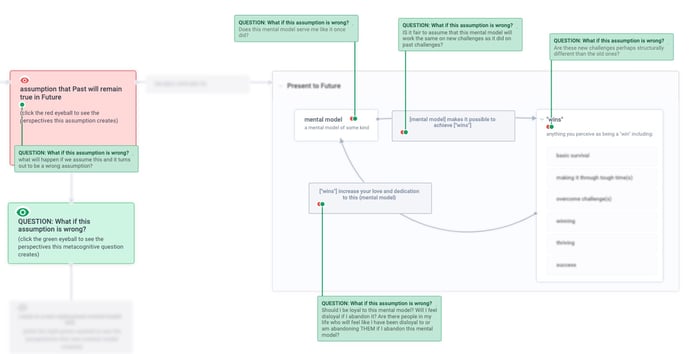 What happens when we question our assumptions?
What happens when we question our assumptions? But, the new situation requires them to learn to trust in order to have successful relationships or to be successful at their job. And yet they have this mental model that has become like a childhood friend that they are loyal to. They of course don't want to leave that childhood friend. They don't want to give up on them. On top of that, some of the mental models exist in your subconscious and unconsciously affect your behavior.
That doesn’t change the fact that we still need to question them and we need to question, "What are these mental models?" Why are they here? What if that mental model isn't going to get me to the kinds of wins that I want in this period of my life? What has changed structurally about this period that's different from the previous period I was in? What has changed about my environment? Maybe I'm in a completely different kind of environment now. Those changes in the environment in which I currently exist indicates that I need to change my mental models. With any kind of change in your environment, your situation, your station in life, or even getting a new job requires a check of your mental models.
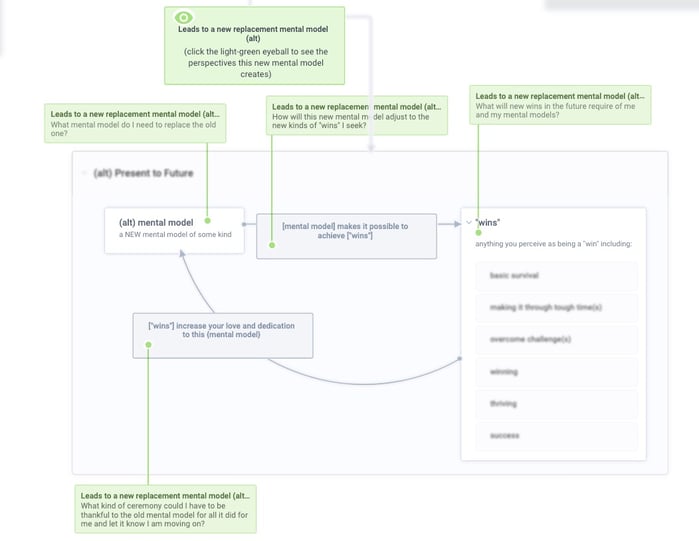 What happens if you allow your mental models to be replaced?
What happens if you allow your mental models to be replaced? Another classic example is the Peter Principle. The Peter Principle is an observation that the tendency in most organizational hierarchies, such as that of a corporation, is for every employee to rise in the hierarchy through promotion until they reach a level of respective incompetence[1]. Essentially, if you put your nose to the grindstone and do a great job at the tactical level, you’ll get a raise and you move up to the operational level. And if you continue to do a really good job at the tactical and operational levels, you’ll get another raise and move up again. Now, you’re at the strategic level, where you're a manager and now the job is about getting the most out of other people and to have them work as a great team. However, you are used to putting your head down and working hard as an individual.
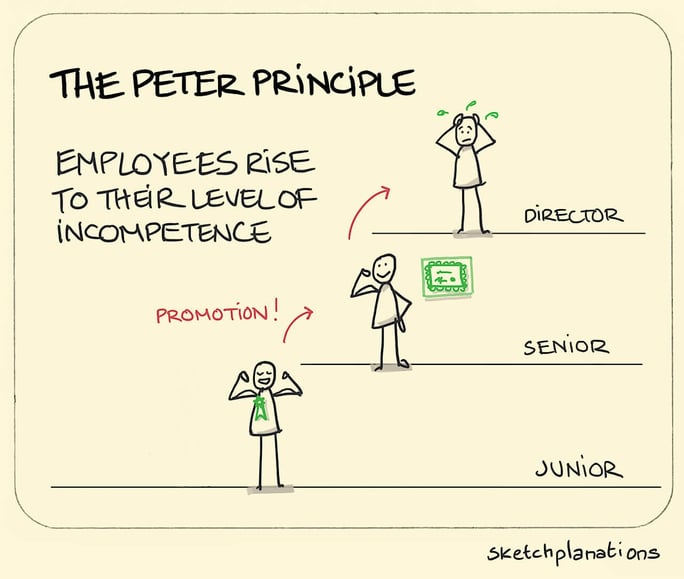
This happens to a lot of new managers: what got them to a management position is very different from what's going to get them to be a successful manager. Those are very different skills. If you are beholden to your old style, then you will keep doing it and you're going to be a terrible manager. So that's another example of this slider.
Staff: That's a very interesting concept. I see people, in younger generations talking about how “adulting” is so difficult that they feel stuck in their life. Based on what I'm hearing, I think what is happening with that is they're operating as if the past is their future.
Dr. Derek Cabrera: Yes, the things that get you through childhood will not get you through your 20s. That's a good example, because you can think about it decade-wise. The mental models that got you through your teens are not going to get you through your 20s. And the mental models that got you through your 20s are not going to get you through your 30s and continuing on for your 40s and 50s because your life situation changes throughout time. Hopefully your situation is changing. Otherwise, the mental models you have been using probably aren’t working and you weren’t getting many wins in the first place.
Staff: It appears to me the slider is encouraging because it’s not only about dismissing old mental models, but instead about having a principle of adaptability in your thinking and everyday life.
Dr. Derek Cabrera: Yes, I think this is a slider that applies to so many different things. Another great example is the Pareto Principle that influences many athletes' entire careers. The Pareto Principle states that for many events, about 80% of the work comes with 20% of the effort, and the final 20% of the work comes with 80% of the effort. Looking at top athletes, some had a natural talent in high school that brought them to the top universities for their sport. Then they realize that in order to stand out in college athletics they need to combine their natural talent with a lot of hard work and essentially reinvent the way they train and perform at their sport. They take it up a notch to stand out among their teammates. They must change their mental models in order to take their game to the next level. Even moving from Olympic bronze medal to a gold medal requires learning not in an additive way, but in a transformative way.
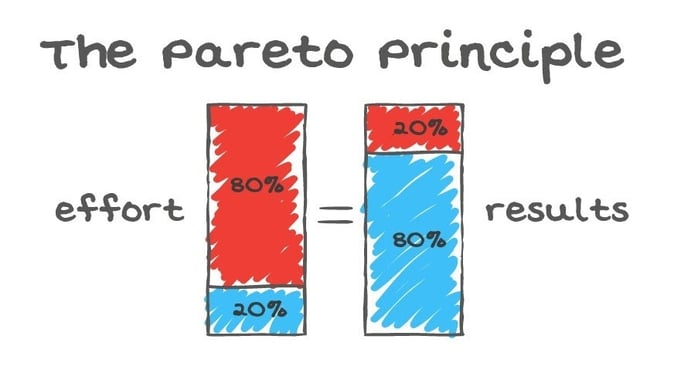
You can begin to think of your mental models as a friend group. They were there for you while you were friends, but as your situation changes and you move through life, you get new friends who are more suited for your situation. They can now be there for you, because your old friends no longer know how to help you. That doesn’t mean that you have to get rid of all of your old friends, but you do have to make new ones in order to be successful.
Another good metaphor is a security blanket. If you had a “blankie” as a kid that you carried around with you. It was cute when you were a kid and it made you feel better. However, if you carry it around when you’re in your 20s, it’s probably going to get you kicked out of places or not get invited to events. So, as you get older, you can enjoy having your blanket in private, but not in public. This is the same with mental models. There are so many examples of this slider.

The point of this slider to be metacognitive. That's what sliders are all about. What if my assumption that this mental model is gonna serve me my whole life is wrong? You can look at the Systems Thinking loop and see that you need to adjust and build your mental models using the feedback gained from reality. It’s important to not just fall in love with your mental models, but to really question them and ask yourself if they are benefitting you. And then you must be willing to iterate them and change. So that when your situation changes, there is a corollary and necessary shift in many of your mental models.
.png?width=150&height=150&name=CRL%20GOAT%20Logo%20(4).png)


